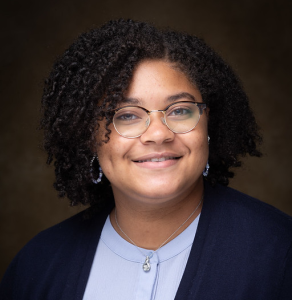Arko Dasgupta is a PhD candidate in History at Carnegie Mellon University and a doctoral fellow in the Samuel DuBois Cook Center on Social Equity at Duke University.
He studies Modern India, the British Empire, early Indian immigration in the United States, and the American Civil Rights Movement.
Recently, he presented a component of his dissertation "I have once renounced my British citizenship and will never become a British subject again": The Ghadar Party launches a diasporic battle.
The presentation was part of the Brown Bag seminar series in the History department at Carnegie Mellon University. Once a month, every semester, faculty and advanced PhD candidates present their works in progress and get feedback from those in attendance, who are typically other members of the department. Generally though, it is faculty who talk about their work and may be one or two PhD candidates through the course of the year.
In this Q&A, Dasgupta shares his research interests and takeaways from the seminar.
Could you give a brief overview of your dissertation and what drew you to studying the Ghadar Party?
A: My dissertation titled The Colour of Anticolonialism: Locating Antiracism in the Indian Freedom Struggle tries to explore the relationship between Indian anticolonialism and racial consciousness across geographical boundaries. Trying to locate sites of agitation with respect to Indian activism in the United States led me to study the Ghadar Party which emerged in Astoria, Oregon, in 1913 and then established itself in San Francisco, California, in 1914. The party was committed to not simply liberating India from British rule but, in addition, endorsed anti imperial movements everywhere. In the United States, it also had to confront anti-Asian violence on the West Coast.

"Ghadar Party Publication” at UC Berkeley. Credit: Arko Dasgupta
In what ways do you think the themes in your research resonate with contemporary issues, particularly in the context of diasporic identity, nationalism, or anti-colonial movements?
A: Simply that, in the context of the Indian population in the United States, there is an older and much longer history of people from the Indian subcontinent coming to the United States. In the American imagination, Indians often figure as depoliticised "model minorities" but they were here long before the Immigration and Nationality Act of 1965 led to the arrival of individuals to meet this country's needs in the fields of engineering, medicine, and computing.
What was the biggest takeaway from this experience--whether from presenting, the feedback, or just engaging with others on the topic?
A: It was a very generative exercise and I was particularly struck by the quality of comments coming from non-specialists, which will no doubt enrich my work. We were all historians in the room but each of us studies specific geographies and time periods. Regardless, the level of engagement was very encouraging and the feedback generally positive. It just goes to show how important it is to share one's work in order to further one's intellectual pursuits.
Is there anything else you’d like to share about this experience or your research?
A: I have really enjoyed working on my dissertation and am grateful that my fellowship in the Cook Centre at Duke has allowed me to bring my intellectual interests and research to another location.
Learn more about Arko and his research on his website!
Written By
Rachel Ruff works to disseminate research findings and current events to media materials for the Cook Center past, current, and ongoing projects. She is also responsible for crafting engaging news stories and articles that highlight the events and achievements within the Cook Center. Additionally, Rachel manages and oversees content on the website, updates program information, and leads social media efforts.


